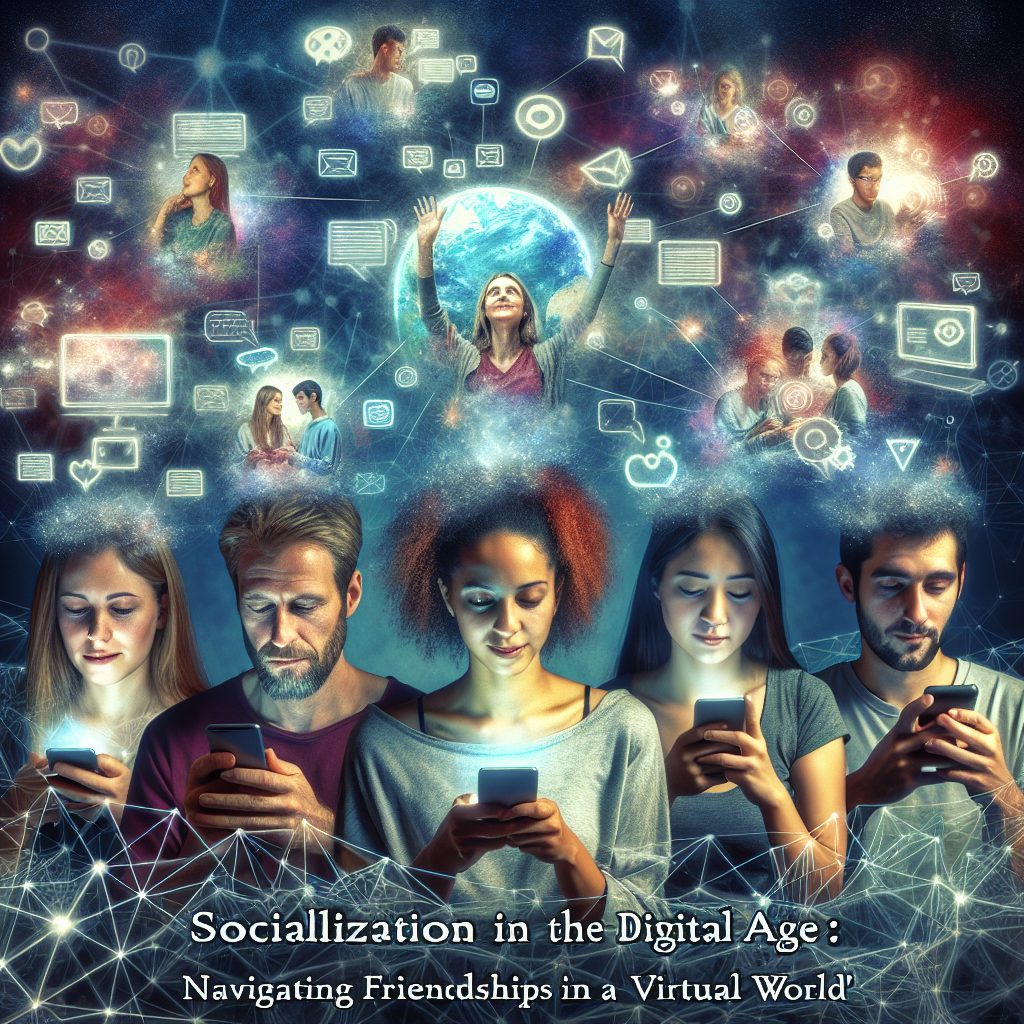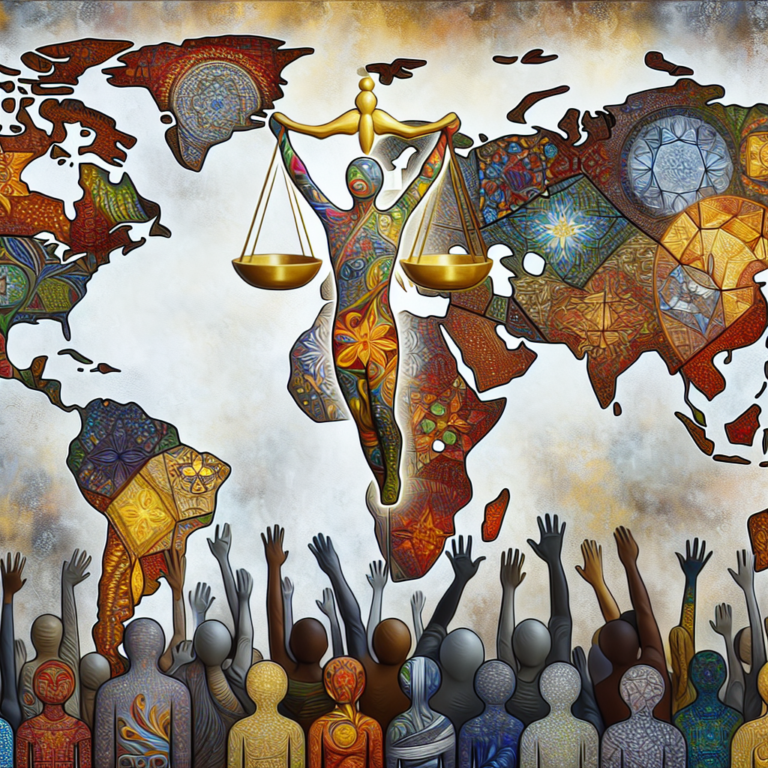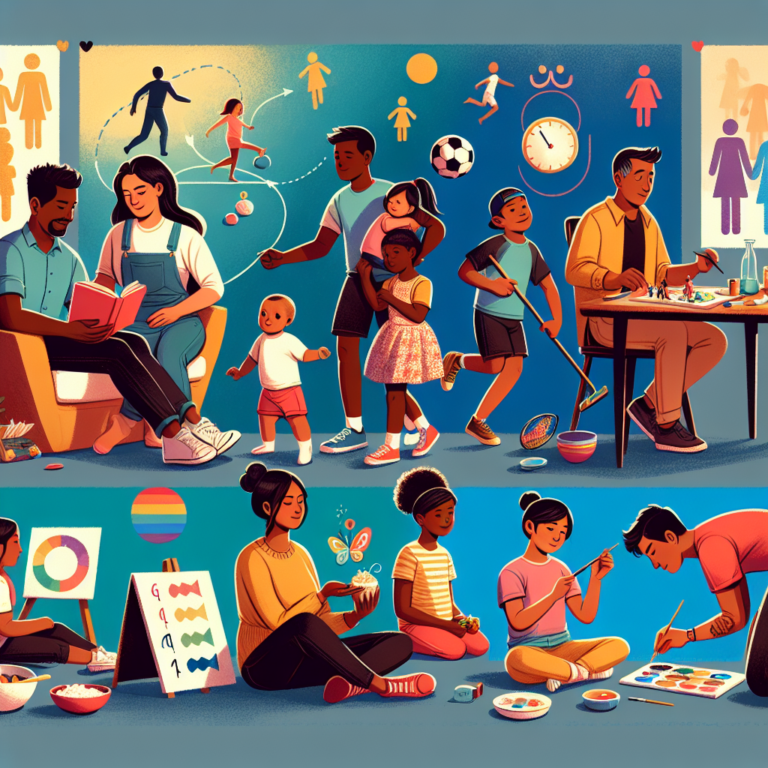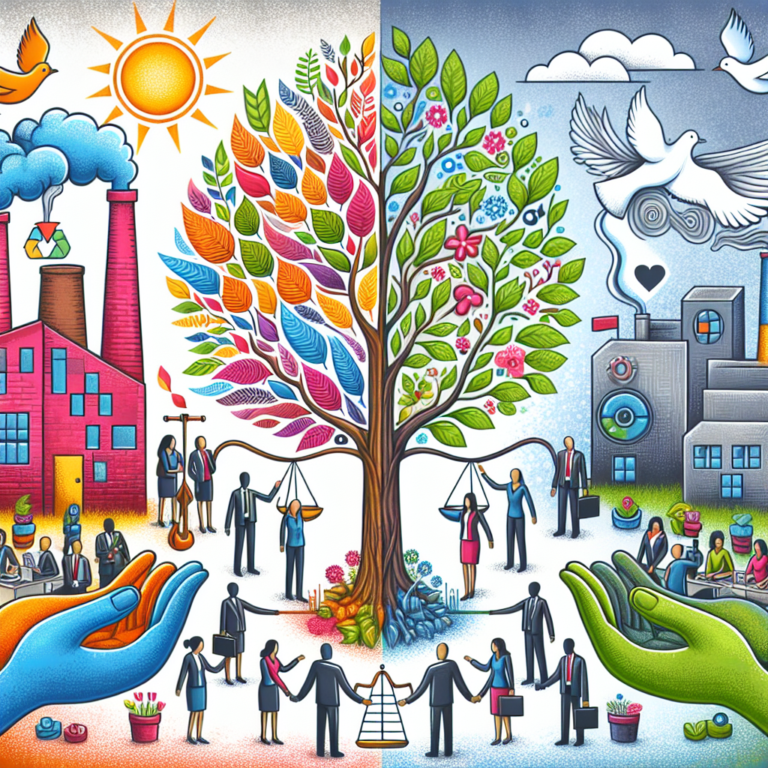
Introduction
In an age where technology permeates nearly every aspect of our lives, socialization has taken on a new form. Gone are the days when friendships were solely nurtured through face-to-face interactions; today, our connections often blossom in the digital realm. Socialization in the Digital Age: Navigating Friendships in a Virtual World is not just a catchy phrase—it represents a profound shift in how we relate to one another. Understanding this paradigm, with its challenges and opportunities, is essential for anyone looking to cultivate meaningful relationships in a hyper-connected world.
The Digital Transformation of Socialization
The Evolution of Friendships
Historically, friendships originated in local communities, defined by proximity and shared experiences. Socialization revolved around physical gatherings, whether in schools, workplaces, or social clubs. With the dawn of the internet and social media, this landscape shifted dramatically. The essence of socialization in the digital age lies in our ability to connect across vast distances, but it also brings complexities that demand new navigational skills.
The Role of Technology
Technology has become the backbone of modern social interaction. From platforms like Facebook and Instagram to chat apps like WhatsApp and Discord, digital avenues provide us with the tools to connect, share, and communicate. Yet, with these advancements come challenges, including digital etiquette, the impact of social media on mental health, and the risk of superficial connections.
Navigating Friendships Online
Understanding Digital Communication
In the realm of socialization in the digital age, knowing how to communicate effectively online is paramount. The nuances of tone, body language, and immediate feedback are often lost in written communication. This section explores various communication styles, including:
- Text Messaging: Quick and casual, ideal for sharing day-to-day thoughts.
- Social Media: A more public form of communication where context might be misinterpreted.
- Video Calls: Offering a semblance of face-to-face interaction, yet sometimes lacking spontaneity.
Case Study: The Online Gaming Community
One prime example of navigating friendships in a virtual world is found in online gaming communities. Gamers often forge deep friendships through shared experiences within games, transcending geographic limitations. A study conducted by the International Journal of Communication found that many gamers report feeling more connected to their online friends than to those in their physical lives.
Analysis
This case study showcases how common interests, teamwork, and shared challenges in a digital environment can strengthen bonds and create a sense of community, underscoring the value of connection beyond physical boundaries.
Maintaining Authenticity
In a world saturated with curated personas, authenticity is vital for meaningful connections. This section discusses strategies to remain genuine while socializing online:
- Be Yourself: Share your interests, vulnerabilities, and opinions honestly.
- Encourage Open Dialogues: Foster environments where discussions can happen without judgment.
- Practice Active Listening: Engage with others by acknowledging their thoughts and feelings.
The Challenges of Digital Friendships
Mental Health Impacts
Research indicates a complex relationship between social media use and mental health. While online connections can bolster support, excessive use can lead to feelings of loneliness and anxiety.
Case Study: The Impact of Social Media on Adolescents
According to a study by the Pew Research Center, adolescents who heavily use social media experience higher rates of loneliness and depression. The constant comparison to curated online selves leads to unrealistic standards and social anxiety.
Analysis
This highlights the importance of balancing social media engagement with real-life interactions. Advocating for more face-to-face time can mitigate negative effects and foster deeper connections.
Best Practices for Digital Friendships
Setting Boundaries
Establishing boundaries is crucial in maintaining healthy digital relationships. This section outlines best practices, such as:
- Limiting Screen Time: Being conscious of how much time is spent online can enhance real-life interactions.
- Choosing Platforms Wisely: Engaging in platforms that align with your values and interests creates a more fulfilling social experience.
- Recognizing Red Flags: Understanding when a digital relationship is detracting from your wellbeing is essential.
Case Study: The Rise of Digital Detox
Many companies and initiatives promote digital detoxes as a way to combat the overwhelming nature of online interactions. For instance, the #OptOutside campaign encourages individuals to spend time in nature, away from screens, fostering a connection with themselves and their surrounding world.
Analysis
Engaging in digital detoxes can rejuvenate personal well-being and reinvigorate relationships, emphasizing the importance of balance in the pursuit of meaningful connections.
Cultivating Meaningful Connections
Strategies for Connection
Building and maintaining friendships in a digital landscape requires intentionality. Effective methods include:
- Scheduling Virtual Hangouts: Regular video calls or game nights can keep friendships vibrant.
- Joining Online Communities: Engage with groups that share interests to foster new connections.
- Sending Personal Messages: A simple text or message can make someone feel valued and remembered.
Case Study: Virtual Book Clubs
During the pandemic, virtual book clubs exploded in popularity. These clubs provide opportunities for individuals to connect over shared interests, crafting discussions that dive deep into themes and personal reflections.
Analysis
Virtual book clubs demonstrate the potential of digital platforms to provide intimate, enriching experiences that can deepen bonds among friends, showcasing the innovative ways people can connect.
Conclusion
Socialization in the Digital Age: Navigating Friendships in a Virtual World presents a unique blend of challenges and opportunities. By embracing technology’s advantages while being mindful of its pitfalls, we can cultivate meaningful relationships that stand the test of time. The key is to stay true to oneself, prioritize authentic interactions, and balance the digital with the physical.
FAQs
1. How can I maintain friendships that primarily exist online?
Building rapport through regular communication, sharing experiences, and planning virtual meetups can enhance these relationships.
2. What are some signs that a digital friendship is unhealthy?
Signs may include feelings of anxiety or burnout after interactions, consistent drama, or manipulative behavior.
3. Can online friendships be as meaningful as in-person ones?
Absolutely! Many online friendships deepen through shared experiences and emotional support, often rivaling, or even surpassing, in-person connections.
4. How can I find communities that align with my interests online?
Platforms like Reddit, Discord, and specialized forums cater to various interests. Joining groups or forums related to your hobbies can create new connections.
5. What roles do digital tools play in enhancing friendships?
Digital tools enable instant communication, sharing of experiences, and opportunities for collaborative activities, cementing bonds regardless of geographical barriers.
In navigating friendships in the digital age, a blend of mindful engagement and authentic connection can lead to enriching relationships that thrive amidst the noise of the virtual world. Embrace the adventure, and you may find friendships that deeply resonate in your heart.














